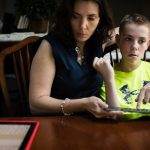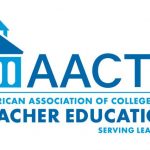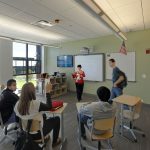Friendships are powerful and positive – especially friendships between members of historically marginalized groups like women, people of color, and LGBTQ individuals. In a paper recently published by the journal Human Resource Development Review, lead author Kristi Kaeppel ’20 Ph.D., a graduate assistant with the Center for Excellence in Teaching and Learning; adjunct professor of philosophy at UConn Stamford and School of Business academic advisor Emma Björngard-Basayne ’15 MA, ’18 Ph.D.; and Grenier argue that workplaces that value and promote friendships can enhance the well-being of their workforce – to the benefits of both the individuals and the institutions.
We call them our colleagues, our peers, our mentors, or our coworkers – they are the people in our professional lives that also share in the details of our personal lives, who we associate with voluntarily, and who we trust with our thoughts, our experiences, and our fears.
Outside of work, we might call these relationships “friendships,” but it’s rarer to hear that particular f-word at the office – and the reason has to do with more than just semantics.
The University of Connecticut has been awarded a $179,000 grant from the U.S. Department of Education’s Office of Postsecondary Education for a new research project centered on reimagining dual language education. The project’s purpose is to improve the ability of dual language programs to promote the equitable bilingualism and biliteracy development of all students through a greater focus on sociocultural competence.
Children don’t come with how-to manuals. Even if they did, they would all require a manual of their own, tailored to their unique make and model. That’s why caregiving can be rewarding, as well as puzzling and demanding – particularly for family caregivers of children with disabilities. Although these caregivers often report that the role gives them a sense of purpose, it usually comes with physical, emotional and financial strains. COVID-19 has added major hurdles to accessing, delivering and evaluating special education services.
Children don’t come with how-to manuals. Even if they did, they would all require a manual of their own, tailored to their unique make and model. That’s why caregiving can be rewarding, as well as puzzling and demanding – particularly for family caregivers of children with disabilities. Although these caregivers often report that the role gives them a sense of purpose, it usually comes with physical, emotional and financial strains. COVID-19 has added major hurdles to accessing, delivering and evaluating special education services.
Beginning in Fall 2021, UConn’s Neag School of Education will be offering a new program in American Sign Language (ASL) education. Recently approved by the Connecticut Board of Education, the program is designed to prepare aspiring educators interested in becoming teachers of ASL. UConn became the first higher education institution in the state to offer a four-year bachelor’s degree in ASL when the College of Liberal Arts and Sciences introduced an ASL major earlier this year. This new world language ASL education program will likewise be the first of its kind in the state of Connecticut.
This fall, the American Association of Colleges for Teacher Education (AACTE) selected UConn’s Neag School of Education to join its Holmes Scholars Program, a nationwide network of higher education institutions seeking to support students from historically underrepresented communities enrolled in graduate programs across the field of education.
Beginning in Fall 2021, UConn’s Neag School of Education will be offering a new program in American Sign Language (ASL) education. Recently approved by the Connecticut Board of Education, the program is designed to prepare aspiring educators interested in becoming teachers of ASL.
Vincent Rogers of Storrs, Connecticut, a longtime educator and faculty emeritus at the Neag School of Education, died Thursday, Dec. 3, at age 93. He died at home, surrounded by his loving family.
Sandra Chafouleas, a professor in the Neag School of Education at UConn, said that families should come up with a plan and schedule, including time away from all devices.






